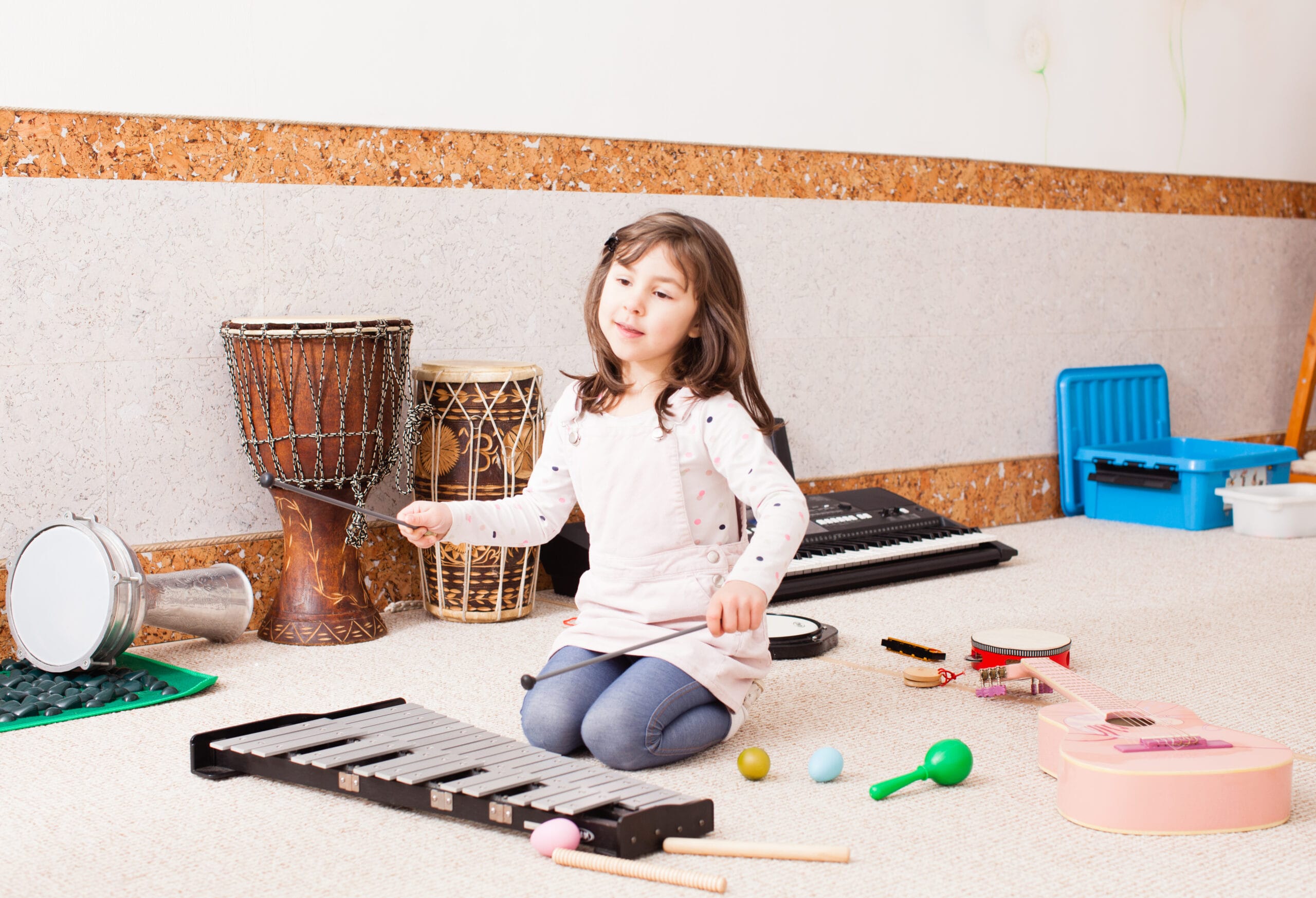How music gives kids a learning advantage
The human brain is not born fully formed; it is a dynamic organ that undergoes significant changes throughout childhood. This remarkable plasticity allows early experiences to profoundly shape its structure and function. While various factors influence brain development, music emerges as a powerful catalyst, offering unique benefits for young minds.
The Impact of Music on Brain Structure and Function
Research consistently demonstrates that musical training has a profound impact on brain development. Studies from the Brain and Creativity Institute at the University of Southern California have shown that even a few years of formal music instruction can lead to significant changes in brain structure and function.
- Structural Changes: Music training can alter the structure of both gray matter, which contains the majority of the brain’s neurons, and white matter, the pathways that connect different brain regions. White matter tracts, crucial for efficient communication between brain regions, have been shown to exhibit increased myelination (the insulation of nerve fibers) in musicians. This enhanced myelination leads to faster and more efficient neural transmission, which can significantly impact cognitive function.
- Functional Enhancements: Music instruction has been shown to boost the engagement of brain networks responsible for crucial cognitive functions such as decision-making, attention, and impulse control. Neuroimaging studies have revealed increased activation in brain regions associated with auditory processing, motor control, and executive function in musicians compared to non-musicians.
Research on Music and Brain Structure
Musical Training Shapes Structural Brain Development
Key Finding: structural brain changes appear after only 15 months of musical training in early childhood, which were correlated with improvements in musically relevant motor and auditory skills.
Key Finding: This study found that musicians have stronger brain activity and larger hippocampus volume compared to non-musicians when recalling familiar music. This suggests that learning to play music strengthens memory centers in the brain.
How musical training affects cognitive development: rhythm, reward and other modulating variables
Key Finding: Music training can significantly improve cognitive skills beyond just musical ability, such as memory, attention, and even academic performance.
The Association between Music and Language in Children: A State-of-the-Art Review
Key Finding: This research shows that music, with its rhythms and melodies, plays a significant role in how babies learn to understand and use language.
Music Training Can Change Brain Structure and Boost Decision-Making Capabilities
Key Finding: This study, performed on the Youth Orchestra of the Los Angeles Philharmonic Orchestra, revealed that children participating in music education programs experienced growth in brain regions associated with sound processing and increased connectivity within the corpus callosum, the bridge that connects the two hemispheres of the brain. This increased interhemispheric communication is crucial for various cognitive functions, including language processing, creativity, and problem-solving.
Benefits of Music Education for Cognitive Development
The impact of music on brain development extends beyond musical abilities. Research has demonstrated a range of cognitive benefits, including:
- Enhanced Hippocampal Function: Musical training strengthens the hippocampus, leading to improved memory, learning, and spatial navigation abilities. Studies have shown that musicians often exhibit superior memory for melodies, rhythms, and even unrelated information.
- Improved Executive Function: Studies using the Stroop task, which assesses cognitive flexibility and attention, have shown that young musicians exhibit greater engagement of brain networks involved in executive function and decision-making. They are better able to inhibit impulsive responses, maintain attention, and switch between tasks more efficiently.
- Enhanced Cognitive Flexibility: Music training fosters cognitive flexibility, enabling individuals to adapt to changing demands and think creatively. The ability to improvise, compose, and interpret music requires constant adaptation and creative problem-solving, which translates to improved cognitive flexibility in other domains as well.
- Improved Language Skills: Music training can also enhance language skills, particularly phonological awareness (the ability to identify and manipulate sounds in spoken language), which is a crucial foundation for reading and writing.
Music at Step by Step Nurseries
At Step by Step Nurseries, we recognize the profound impact of music on early childhood development. We provide a rich musical environment where children can sing, dance, play instruments, and explore the world of sound. This not only enriches their lives but also equips them with essential cognitive skills that will benefit their academic journey and beyond.
We believe that music is more than just entertainment; it is a powerful tool for cognitive, social, and emotional development. By incorporating music into our curriculum, we aim to nurture well-rounded individuals with strong cognitive foundations and a lifelong appreciation for the arts.
We invite you to join our regular music and movement workshops. Visit our events page for more details!



